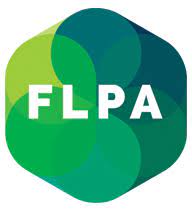Prenup Lawyers Brisbane: Protecting Your Assets with a Prenuptial Agreement
A prenuptial agreement, commonly known as a prenup, is a vital legal tool for couples looking to protect their financial assets before entering into marriage. In Brisbane, prenuptial agreements are increasingly sought after by individuals who want to safeguard their property, financial resources, or protect children from previous relationships. At Cudmore Legal, our experienced prenup lawyers specialise in drafting and reviewing prenuptial agreements that comply with the Family Law Act and help you navigate the complex legal landscape.
What is a Prenuptial Agreement?
A prenuptial agreement (prenup) is a legally binding financial agreement made before marriage that outlines how assets, liabilities, and financial resources will be distributed if the relationship ends. These agreements are critical for avoiding disputes related to property settlement, spousal maintenance, and child support in the event of a separation or divorce. Under the Family Law Act 1975, prenuptial agreements must meet stringent legal requirements to be upheld by the court.
Prenuptial agreements are not limited to married couples. You can also enter into a Binding Financial Agreement (BFA) before or during a de facto relationship to outline how your finances will be handled if the relationship breaks down.
Key Elements Covered in a Prenuptial Agreement:
- Property Settlement: Who gets what assets, such as real estate, bank accounts, investments, and personal property.
- Spousal Maintenance: Whether one party will pay spousal support to the other after separation.
- Debt Allocation: How liabilities, such as mortgages, credit card debts, and personal loans, will be handled.
- Protection of Inheritance: How inherited assets will be treated in the event of separation.
- Superannuation: Clarifying entitlements to superannuation funds.
Why Enter Into a Prenuptial Agreement?
Prenups are designed to provide peace of mind and financial security. There are many reasons why individuals and couples opt for this type of agreement, including:
1. Protection of Pre-existing Assets
If you own substantial assets before entering into the relationship, such as a family business, real estate, or investments, a prenup ensures that these assets remain yours in the event of a separation. This is particularly important when one party brings significantly more wealth into the relationship than the other.
2. Safeguarding Children from Previous Relationships
For individuals with children from previous relationships, a prenup ensures that their financial interests are protected. The agreement can specify how assets will be distributed to ensure that your children’s inheritance is safeguarded, regardless of what happens in the current relationship.
3. Reducing Disputes and Legal Battles
By clearly outlining how assets and finances will be handled, a prenup reduces the likelihood of costly and time-consuming disputes in the Family Court. It allows couples to opt-out of the default legal processes, providing certainty and clarity.
4. Estate Planning
Prenuptial agreements can work in conjunction with your estate plan to ensure that your assets are distributed according to your wishes. This is especially useful for individuals who want to ensure their estate passes to specific beneficiaries.
5. Protecting Business Interests
If you are a business owner, a prenup can protect your business from being divided during a separation. This ensures that your business remains operational and that your partner doesn’t acquire a stake in it unless explicitly agreed upon.
Legal Requirements for a Valid Prenuptial Agreement
In order for a prenuptial agreement to be legally enforceable, it must comply with the strict requirements set out in the Family Law Act 1975. These requirements include:
- Independent Legal Advice: Both parties must obtain independent legal advice from separate lawyers regarding the advantages, disadvantages, and effects of the agreement.
- Written Agreement: The prenup must be in writing, clearly outlining the financial arrangements and division of assets.
- Certification: Both parties’ lawyers must sign a certificate confirming that independent legal advice was provided.
- Full Disclosure: Both parties must fully disclose all assets, liabilities, and financial resources. Failing to do so may result in the agreement being set aside by the court.
Can a Prenuptial Agreement Be Overturned?
While prenuptial agreements are legally binding, they are not immune from being overturned by the court under certain circumstances. Prenups can be challenged in situations such as:
1. Coercion or Duress
If one party was forced or pressured into signing the agreement, the court may declare it invalid. This often arises when there is unequal bargaining power between the parties, for example, if one party has significantly more resources than the other and uses this to pressure the other into signing.
2. Fraud or Non-Disclosure
If a party fails to disclose all of their assets or financial resources, the agreement may be set aside on the grounds of fraud or incomplete disclosure. Transparency is essential for the agreement to be legally binding.
3. Significant Changes in Circumstances
The court may set aside a prenup if there have been significant changes in circumstances, such as the birth of a child, which render the agreement unfair or impractical.
4. Unfairness or Unconscionability
If the agreement is deemed grossly unfair or if one party was at a significant disadvantage at the time of signing, the court may intervene and set aside the agreement. Learn more about over tuning a prenuptial agreement here.
Benefits of a Prenuptial Agreement
Entering into a prenuptial agreement has several advantages, including:
- Opting out of Family Court jurisdiction on financial matters.
- Asset protection: Safeguarding assets from being divided in the event of separation.
- Preserving wealth for children from previous relationships.
- Certainty and peace of mind: Clarifying financial arrangements and reducing the risk of future disputes.
Disadvantages of a Prenuptial Agreement
However, there are also potential downsides to prenups, including:
- No fairness requirement: The agreement does not need to be fair, which may lead to one party receiving less than what they might be entitled to through the court process.
- No consideration of intangible contributions: Prenups may overlook non-financial contributions, such as homemaking or caregiving.
- Frequent updates: Changes in circumstances, such as having children, may necessitate updates to the agreement, which can be costly and time-consuming.
Costs of a Prenuptial Agreement
Due to the technical and legal complexities involved in drafting a prenuptial agreement, the costs can be significant. Typically, the cost of a prenup can range into the thousands, especially when both parties must receive independent legal advice to ensure the agreement is valid and enforceable. However, investing in a properly drafted agreement can save both time and money in the long run by avoiding future disputes.
Prenuptial Legal Advice: Why Choose Cudmore Legal?
At Cudmore Legal, our team of experienced prenup lawyers can assist with drafting, reviewing, or providing advice on prenuptial agreements. We will help you understand the advantages and disadvantages based on your individual circumstances and ensure that the agreement is fair, legally compliant, and tailored to your needs.
We take the time to:
- Explain the legal implications of the agreement.
- Ensure full disclosure of assets and liabilities from both parties.
- Draft clear and comprehensive terms that protect your financial interests.
- Provide independent legal advice to ensure the agreement is enforceable.
Contact Cudmore Legal Today for Prenup Advice
If you’re considering entering into a prenuptial agreement, contact Cudmore Legal today. Our team of prenup lawyers can provide legal advice tailored to your unique situation. We ensure that your agreement is robust, legally binding, and protects your financial future.














